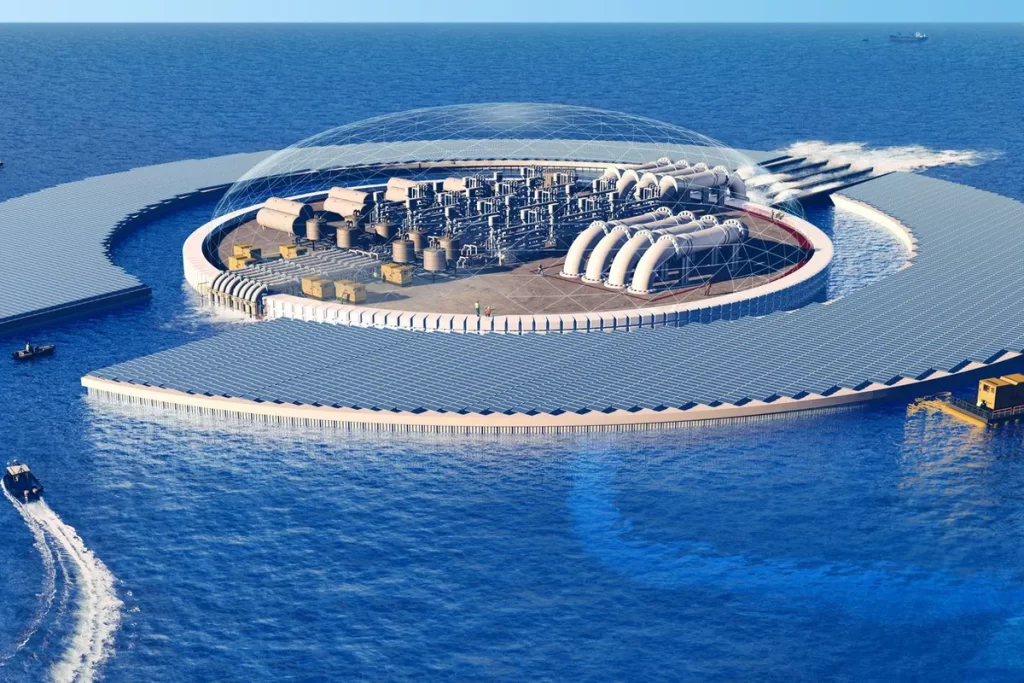Fossil Fuel-Funded Startup Tackling Climate Change Through Ocean Carbon Capture
By James Pebenito • May 9, 2023
Fossil Fuel-Funded Startup Tackling Climate Change Through Ocean Carbon Capture
An audacious and ambitious strategy, direct ocean capture (DOC), has evolved in the fight against climate change. Supported by major players in the fossil fuel and technology industries, this emerging technology intends to remove carbon dioxide from the Pacific Ocean. Though promising, more research is needed to establish the idea’s viability and avoid unforeseen repercussions.
The DOC system is based on the well-established fact that the ocean can absorb large amounts of carbon dioxide. According to Henry’s Law, which describes the behavior of gases at different temperatures and pressures, carbon dioxide always moves toward a state of equilibrium. The oceans take in more carbon dioxide (CO2) when atmospheric concentrations rise due to emissions from burning fossil fuels.

Introducing Captura
We’d like to introduce you to a new company named Captura, which is pioneering this ground-breaking strategy. Stripe, Alphabet, Meta, Shopify, and McKinsey are just some of the big names in the fossil fuel and digital industries that are backing Captura’s efforts to commercialize ocean carbon capture. Frontier is a project formed by these industry titans to facilitate carbon offsetting using new technology, and the company has joined forces with Frontier to do just that.
Despite the advantages, there are many obstacles to overcome before direct ocean capture becomes a reality. To assure its efficacy and environmental safety, the technology is still in its infancy and needs extensive testing and validation. Critics warn of the potential fallout from upsetting the ocean’s delicate ecosystem. Captura and other trailblazers in this space will face a significant task in balancing reducing carbon emissions and safeguarding marine life.
The Role of Carbon Credits
Carbon credits will play a significant role in Captura’s strategy to monetize its efforts through the Frontier program. The amount of carbon dioxide (CO2) captured directly from the ocean and represented by these credits. To offset their emissions and back up new carbon removal technology, businesses can use this funding mechanism. In the upcoming year, Captura plans to build a pilot plant in an effort to extend its current operations.
Although direct ocean collection has the potential to be an effective instrument in the battle against climate change, it is essential to move cautiously. The success of the technology and the protection of the environment require thorough testing and strict environmental safeguards. The world is watching to see if direct ocean capture can make a real difference in the fight against rising carbon emissions as fossil fuel companies and IT giants pour their weight behind this novel technique.



